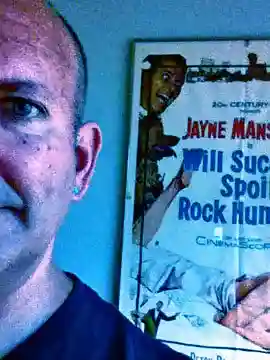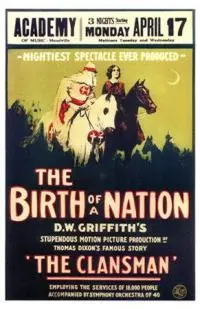“We have made enormous progress in teaching everyone that racism is bad. Where we seem to have dropped the ball is in teaching people what racism actually is.” —Jon Stewart
'The Killing of One's Soul'
As is his habit, Stewart nails it. Apart from pockets of neo-Nazi white supremacists and a few recalcitrant Johnnie Rebs waving their sore-loser Confederate flags, we all consider racism to be, at best, gauche. Not tolerated by polite society. Rude. Uncivilized. No one admits to it. Racism is like a sociopolitical STD, a mark of shame – something to hide from friends and coworkers.
And yet we’re more conscious of — and confused by -— race and racism than at any point in the last hundred years, the violent civil rights fights of the 1960s included. As Stewart said, virtually everybody agrees today that racism is a Bad Thing. That couldn’t be said in the ‘60s. But now, beneath our good-mannered surface lies immeasurable rage. As Samuel L. Jackson said, “People know about the Klan and the overt racism, but the killing of one's soul little by little, day after day, is a lot worse than someone coming in your house and lynching you.” Jackson couldn’t (or wouldn’t) have made this point in the ‘60s, when right-thinking people held out hope for the future. It turned out, of course, that laws alone couldn’t sweep the problem away, and neither could the election of the first African-American president. Racism proved to be intractable. It’s embedded in our national DNA. We know it’s wrong, but nobody knows what to do about it. And none of us is happy with where we are now.
I can’t answer the question of what racism is. Won’t even try. Instead, I’ll just suggest that one way of approaching the issue is to read books and see films that have the reputation of being racist, especially those about which that racist reputation is debatable. Why? Because questioning what racism is in literature and film might lead to slightly less murky ideas about what racism is and means for real people. (Sure, go ahead — ask what reading books really accomplishes in the real world. I can't answer that either.)
![]() Clobbered
Clobbered
If you want to be head-slammed by racism, take a look at D. W. Griffith’s The Birth of a Nation (1915), a film that's as politically sickening as it is formally brilliant. With its appalling contrast between a demented mulatto and the heroic, white-hooded Klan — and lots of African-Americans are played by white people in blackface — the film’s racism is impossible to miss. But unless you've been living under a rock, you won't learn what racism is by seeing The Birth of a Nation. Racism has evolved into something much more subtle and insidious since 1915.
Rudyard Kipling’s The Jungle Books are more challenging. As Brian McGackin wrote so entertainingly of Kipling in a LitReactor column a few years ago, “Okay, so this guy was super racist, right? Is that a thing? People are aware of this? Maybe racist isn't exactly the right word, but Kipling was taking major swigs of the imperialist Kool-Aid.”
So are The Jungle Books racist? And if they are, what makes them so?
Yup, They’re Racist
Rudyard Kipling was a writer of his time and place, just as we all are. He couldn’t possibly have written outside the sociocultural box into which he was born. Kipling happened to be a 19th-century Anglo-Indian – meaning not a man of mixed race but rather an Englishman born in India, an older sense of the term. He was a child of imperialism and colonialism – on the side of the imperialist-colonialists, of course. As such, Kipling was “morally insensitive and aesthetically disgusting” in George Orwell’s harsh and uncompromising view. With India under Great Britain’s vast and powerful thumb, its treasures regularly plundered, its peoples subjugated, their rebellions put down like lame horses, how could two products of empire like The Jungle Books escape the charge of racism? They can’t.
Kipling tells a number of stories in The Jungle Books, many of which feature a literally wild child named Mowgli, whose adoptive parents are wolves. Mowgli’s tales are by far The Jungle Books’ most famous and affecting; they’re the basis of Jon Favreau’s new film (live action hopped up by CGI) as well as the 1967 Disney animated feature and at least three other movie adaptations. Other stories concern a small boy who becomes an elephant master (“Toomai of the Elephants”); a group of seals on some Alaskan islands (“The White Seal”); a lengthy conversation between a mule, an elephant, and some camels (“Servants of the Queen”); and a chatty mongoose that heroically wipes out two murderous cobras (and all of their ready-to-hatch eggs) that threaten an English family in the Indian countryside (“Rikki-Tikki-Tavi”). But the Mowgli stories are the heart of the books, and it is to them that we turn to gauge the extent and nature of The Jungle Books’ racism as well as that of their author.
Mowgli is a special boy – a jungle child. He learns all about the jungle and its inhabitants and ways of life, and he can do so in large measure because all the animals talk. Not only do different species speak to and understand each other, but they also act remarkably like various types of people. Wolves are, by and large, nurturing. Monkeys are obnoxious and stark-screeching mad. Bears are legal minded. And Mowgli, the sole human, is the only jungle creature to claim almost all the animals’ respect and admiration. (A certain fearsome tiger is an outstanding exception.)
If Mowgli represents the British and the jungle is India, The Jungle Books are vile. Mowgli is human; the natives are animals. Mowgli learns how to manipulate every other species, all of which are lower in Kipling’s implicit ranking. And the animals accept Mowgli’s elite nature and for the most part go along with his decisions even when they don’t really want to. It's all part of the natural order of things: humans are superior to animals; whites are superior to everyone else.
India in its vastness contains a wide variety of ethnicities – Sikhs, Hindus, Muslims, Zoroastrians, Punjabis, Kashmiris, Hindustanis, Bengalis (some Hindu, some Muslim), Sansis, Christians, Jews, and on and on. It’s as full of life’s diversity as the jungle, home to birds, snakes, monkeys, lions, tigers, and bears. Mowgli learns what he needs from each group, but he’s better than every last one of them because he alone is human. He masters the jungle and all its creatures, just as the British ruled India and its peoples.
At one point in the first Jungle Book, Mowgli leaves the jungle and finds a home with a fairly well-off couple – well off, at least, by the shockingly low standards of a dirt-poor Indian village. Having vanquished his longtime foe, the tiger Shere Khan, he proceeds to skin the dead tiger. If Mowgli could have gone to London or even to Bombay’s or Delhi’s English quarter, he’d have used the tiger hide as a rug; leopard, lion, and tiger skins were big in imperial Britain’s 19th-century design catalog as consumer expressions of the empire’s conquest and subjugation of the exotic, mysterious, lurid East. The British domination of the subcontinent brought spectacular colors and complex, esoteric tastes back to the heart of the Empire as a material display of might.
Perhaps needless to say, shooting wild animals to death was a popular sport for India’s British rulers. It was their right, as lords and masters, to kill as they pleased. And they loved to display the slaughter on their elegant walls and floors.
Of course The Jungle Books are racist.
No, They Aren’t
One big problem with this analysis, both the general type and the particular example, is that it treats literature as being nothing more than crude allegory. Mowgli stands for the British, the animals for Indians. It’s simplistic, reductive. Literature is more than a symbolic reenactment in which the author takes a real world situation and substitutes fictional characters and actions one for one. There’s so much more to it than that. Books are complicated, self-contradicting, impure, messy. Reading them as mere allegories is an easy way out.
And in the case of The Jungle Books it doesn’t really work. Mowgli has dark skin. He is indisputably not English. No, this clever boy is purely, spectacularly Indian. True, Kipling contrasts the extraordinary Mowgli with the common rabble of superstitious, even stupid Indian villagers he encounters – that’s one area in which Kipling’s racism shines through clearly – but Mowgli commands Kipling’s unwavering respect.
Kipling left India at the age of five; his parents sent him to England to be educated, and he despised it. At 16 he returned to the subcontinent and lived for the next 6 years in Lahore (in what became Pakistan after the 1947 partition). In Brian McGacken’s memorable turn of phrase, he probably did drink some imperialist Kool-Aid — which in India tasted a lot like gin — but his love of India stands in stark contrast to his distaste for England.
It may surprise you to learn that Kipling wrote The Jungle Books while living on the outskirts of Brattleboro, Vermont. Idealizing a culture is a mark of imperialism just as much as denigrating one, but the fact is that Kipling conceived, composed, and polished The Jungle Books while fully immersed in the American democracy. They're fantasies, and democratic ones at that. The jungle isn't hierarchical. No species is superior — except for the human. This may be imperialism, but if it is, so is the burger you had for lunch.
A large measure of The Jungle Books’ reputation for being racist comes not from the books themselves but rather from the 1967 animated Disney film, particularly the character called King Louis. The studio wanted Louis Armstrong to voice King Louie, but it occurred to the producers that maybe some overly sensitive complainers would be offended by seeing and hearing the great African-American jazz musician depicted as an ape. So they got Louis Prima, a white jazz singer and trumpeter, to voice the character instead. Notably, there is no King Louis in Kipling’s books, nor do any of the animals sing and dance.
Well? Are They Racist or Not?
It's not a simple question. Kipling's undoubting acceptance of Britain's domination of India is undoubtedly imperialistic. And imperialism goes hand in hand with racism. So in that sense The Jungle Books are racist.
But their racism is fairly subtle. Perhaps that makes them all the more pernicious.
Read them and decide for yourself. It's an ongoing conversation. In the final analysis, there is no final analysis.

About the author
Ed Sikov is the author of 7 books about films and filmmakers, including On Sunset Boulevard:; The Life and Times of Billy Wilder; Mr. Strangelove: A Biography of Peter Sellers; and Dark Victory: The Life of Bette Davis.
 Clobbered
Clobbered








